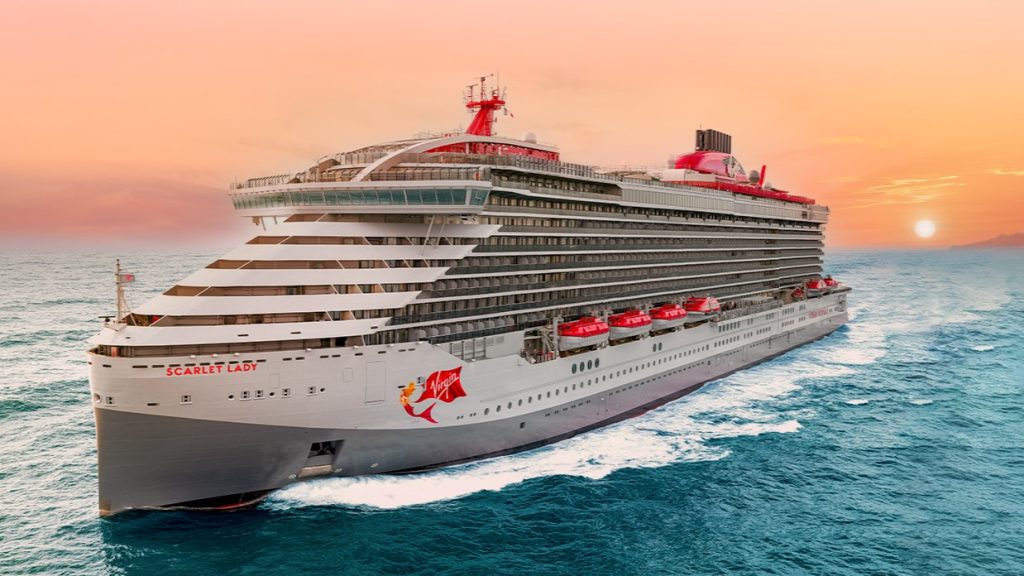Virgin Voyages has successfully completed its first sustainable marine fuel trial. The cruise line bunkered the fuel on September 24 in Barcelona on Valiant Lady and finished the trial on October 16 marking a significant step in reaching net zero goals.

Virgin Voyages, Richard Branson’s newest travel brand, has announced the successful completion of its inaugural sustainable marine fuel trial. As a brand driven by its purpose of “Creating an Epic Sea Change for All,” the commencement of the trial marks a major milestone in Virgin Voyages’ sustainability program and steadfast commitment to reaching net zero carbon emissions by 2050.
Virgin Voyages is among several industry pioneers who have committed to testing sustainable marine fuels, such as waste-based biofuels. The brand’s Barcelona-based vessel, Valiant Lady, bunkered the fuel on September 24 and completed testing and burning of the fuel on October 16. Throughout the trial, the team analyzed the fuel and engine performance during bunkering, storing and burning of the fuel, ensuring it met lab requirements as well as operational expectations.
The fuel mixture was a combination of 20% used cooking oil, which met global ISCC certification, and 80% conventional heavy fuel oil, a purposeful choice as heavy fuel accounts for the largest pool of fuel consumed by maritime vessels.
Jill Stoneberg, Sr. Director of Social Impact and Sustainability for Virgin Voyages said, “There are a variety of blended fuel options that are becoming available. We were especially interested in testing the performance of sustainable fuel mixed with heavy fuel oil. The latter makes up a significant portion of the industry’s fuel demand and therefore, is one of the greatest opportunities for transitioning to lower-carbon fuel solutions.”

Virgin Voyages has pledged to reach net zero carbon emissions by 2050. Additionally, the brand remains dedicated to its sea change commitment, which includes being champions of ocean health, encouraging sustainable practices among guests and promoting responsible tourism in the 100+ ports of call that the brand visits. Virgin Voyages has eliminated unnecessary single-use plastics across its fleet, emphasizes sustainably sourced goods and food products and regularly engages in social impact initiatives. The on-board “Sea Change Fund,” for example, supports mangrove reforestation in the Caribbean.
Stoneberg added, “Completing our first sustainable fuel trial is incredibly promising; this is a near-term solution for the shipping and cruising industry. Sustainable, bio-based fuels can work with our existing engines today, and we could transition to these cleaner fuels now if they were more readily available and affordable. We’re encouraging our cruising counterparts to ask for and test these fuels as stronger demand will ultimately help accelerate the market.”
In 2025, the industry will be required to start using more sustainable fuels for a portion of its fuel demand to comply with the FuelEU Maritime regulation in the European Union. Virgin Voyages is preparing for this shift and is exploring how sustainable fuel adoption will accelerate its decarbonization strategy in the near term. The company will also continue to advocate for robust sustainability standards for waste-based biofuels, such as RSB.